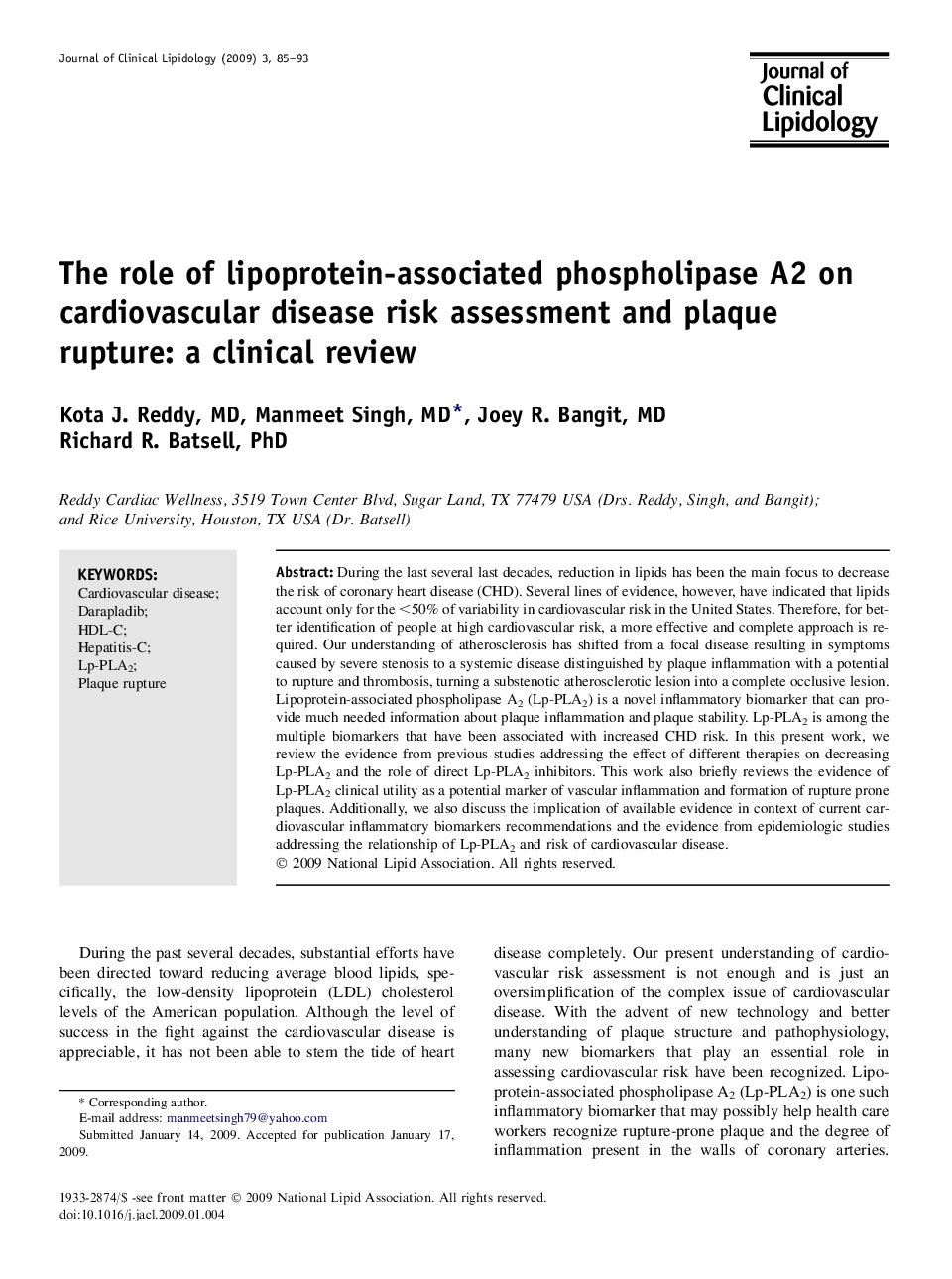| Article ID | Journal | Published Year | Pages | File Type |
|---|---|---|---|---|
| 2967164 | Journal of Clinical Lipidology | 2009 | 9 Pages |
During the last several last decades, reduction in lipids has been the main focus to decrease the risk of coronary heart disease (CHD). Several lines of evidence, however, have indicated that lipids account only for the <50% of variability in cardiovascular risk in the United States. Therefore, for better identification of people at high cardiovascular risk, a more effective and complete approach is required. Our understanding of atherosclerosis has shifted from a focal disease resulting in symptoms caused by severe stenosis to a systemic disease distinguished by plaque inflammation with a potential to rupture and thrombosis, turning a substenotic atherosclerotic lesion into a complete occlusive lesion. Lipoprotein-associated phospholipase A2 (Lp-PLA2) is a novel inflammatory biomarker that can provide much needed information about plaque inflammation and plaque stability. Lp-PLA2 is among the multiple biomarkers that have been associated with increased CHD risk. In this present work, we review the evidence from previous studies addressing the effect of different therapies on decreasing Lp-PLA2 and the role of direct Lp-PLA2 inhibitors. This work also briefly reviews the evidence of Lp-PLA2 clinical utility as a potential marker of vascular inflammation and formation of rupture prone plaques. Additionally, we also discuss the implication of available evidence in context of current cardiovascular inflammatory biomarkers recommendations and the evidence from epidemiologic studies addressing the relationship of Lp-PLA2 and risk of cardiovascular disease.
